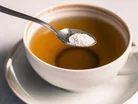American Beverage claim aspartame is safe in response to WHO

In the wake of the World Health Organisation (WHO) having declared aspartame to be a possible cancer risk, American Beverage has released research to suggest that the sweetener is still safe to consume.
The company, an association representing the non-alcoholic beverage industry, said in a statement that people around the world can continue to be confident in consuming food and beverages which contain aspartame.
With the support of regulatory committees and food safety agencies around the world, the news may come as a relief to businesses who feared their supply chains may have been impacted as a result of the WHO declaration.
Prioritising food and beverage safety in industry markets
Aspartame, which is used as a sweetener in fizzy diet drinks like Diet Coke and sugar-free Sprite, was labelled as a potential carcinogen for the first time by the World Health Organisation’s (WHO) cancer research unit, the International Agency for Research on Cancer (IARC), in June 2023.
The product is a low-calorie artificial sweetener, which is approximately 200 times sweeter than sugar and is commonly used as a substitute for sugar in foods and drinks. It is classified as an E number, which is a term commonly given to additives in food in drink products.
However, as much as the designation may have sounded, American Beverage has stated that this label for the product does not necessarily mean that diet soda directly causes cancer. Rather, it shows that there may be a possible link between aspartame and liver cancer, but the science is not yet conclusive by any means.
Kevin Keane, Interim President and CEO of American Beverage, in response to the World Health Organization Review of Aspartame, stated:
"Aspartame is safe. After a rigorous review, the World Health Organization finds aspartame is safe and 'no sufficient reason to change the previously established acceptable daily intake.'
“This strong conclusion reinforces the position of the FDA and food safety agencies from more than 90 countries. People all around the world can be confident in consuming food and beverages with aspartame.
He continued: "The safety of our products is the highest priority for our industry. The purpose and expertise of food safety agencies is to ensure safety over time. The WHO has done this again, rigorously and definitively, with aspartame.
"With more than 40 years of science and this definitive conclusion from the WHO, consumers can move forward with confidence that aspartame is a safe choice, especially for people looking to reduce sugar and calories in their diets."
The UK in particular is currently facing a sharp increase in those experiencing chronic illnesses, with an increase in those with diabetes and cancers. Research suggests that there could be a link between this and the food that we eat, positing emerging scientific evidence that the chemicals in ultra-processed foods could be linked to cancer, diabetes and strokes.
It is clear that more research is needed into these types of products to ensure maximum safety. Further research is set to be conducted on the sweetener, which will ultimately help agencies, consumers and manufacturers alike draw firmer conclusions moving forward.



